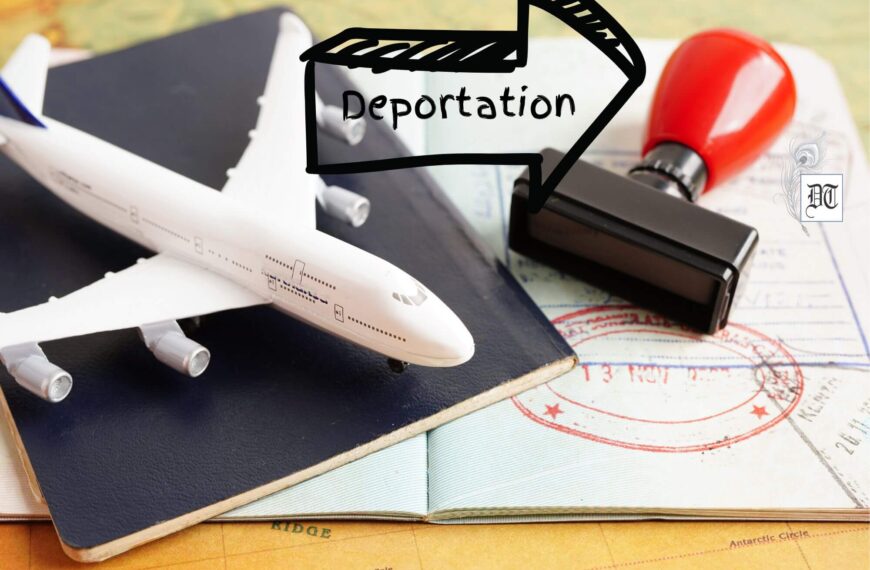Wasn’t the regime’s eye on the people now a little too intrusive? Weren’t all these directives –some unofficial no doubt – akin to impinging on personal choices and personal freedom? Could anyone in authority force us to think or behave in any particular one way, even if it’s supposedly for our good? Did they have the right? Were we, in India, slowly slipping into being a Nanny State? A country with an overprotective government with policies that takes interfering in our lives to a new level? Shouldn’t we, the people, be allowed to make our choices right or wrong, good or bad –on our own? Wasn’t that what liberal democracy was all about! While the intention behind these policies may be applaudable what is worrying is that all these well-intentioned policies smack of authoritarianism and coerciveness. Sreelata takes a hard look at the issue, where the government in power decides what’s good for us, just as a Nanny, exclusively for Different Truths.
On the 8th day of November, 2016, at 8 pm, when the Prime Minister (PM) announced that at the stroke of midnight all 500/1000 rupee notes would cease to exist, he was perhaps making a new tryst with destiny. Most Indians this time too, as those back, in 1947, erupted with joy. Chortling with glee as they foresaw the doom of the black marketeers, midlevel bribe-taking functionaries, the rich and the infamous, who amassed black money through illegal means, the aam admi (mango/common man) that evenin g stood in awe of a PM, who had the gumption to take the fight right into the rank and file of the corrupt. The people felt vindicated. Here was a government that they had overwhelmingly voted for, actually doing something to get rid of corruption. That they the people themselves were among the corrupt was of course beside the point. With just that one stroke they chuckled gleefully, a massive blow had been struck.
g stood in awe of a PM, who had the gumption to take the fight right into the rank and file of the corrupt. The people felt vindicated. Here was a government that they had overwhelmingly voted for, actually doing something to get rid of corruption. That they the people themselves were among the corrupt was of course beside the point. With just that one stroke they chuckled gleefully, a massive blow had been struck.
After years of hopelessness here, at last, was some action. It is, of course, another matter that a few months down the line, opinion is divided as to whether it was a well thought out plan to deliver the corrupt at all or a policy decision taken on a whim to lay low the opposition. Any which way, here was a leader, who led from the front. Here was the strong man that India was waiting for. Here was a government that actually works. A government that had its eye on the pulse of the people. A government that cared. And then along came an insidious thought. Was going cashless to prove that you had no black money- only the latest in the many salvos fired by one authority or the other- aimed at actually undermining our personal freedom?
Learn yoga said our PM and every channel carried him and a few hundred others performing asanas. Fair enough it’s good for us. Then came the Swachh Bharat (Clean India) campaign and before we knew it every man, woman and child were carrying brooms, short-lived though it was, to clean out the muck on the streets. Again a noble endeavor. Soon came along a slew of other dos and don’ts. Don’t eat beef, girls dress decently, stand up for the national anthem, show your nationalism, exhibit your patriotism, learn Sanskrit , use toilets, make in India, belittle Pakistan, shout Bharat Mata ki jai, change the syllabus, extoll our Hindu past and the latest if we are to go by what the chartered accounts association put out, don’t criticise governmental policies. And on its heels followed the push for digitalism. Riding on the back of a KYC with its Aadhar card here and a Pan Card there, it was to be the ultimate in seamless transactions.
 Wasn’t the regime’s eye on the people now a little too intrusive? Weren’t all these directives –some unofficial no doubt – akin to impinging on personal choices and personal freedom? Could anyone in authority force us to think or behave in any particular one way, even if it’s supposedly for our good? Did they have the right? Were we slowly slipping into being a Nanny State? A country with an overprotective government with policies that takes interfering in our lives to a new level? Shouldn’t we, the people, be allowed to make our choices right or wrong, good or bad –on our own? Wasn’t that what liberal democracy was all about!
Wasn’t the regime’s eye on the people now a little too intrusive? Weren’t all these directives –some unofficial no doubt – akin to impinging on personal choices and personal freedom? Could anyone in authority force us to think or behave in any particular one way, even if it’s supposedly for our good? Did they have the right? Were we slowly slipping into being a Nanny State? A country with an overprotective government with policies that takes interfering in our lives to a new level? Shouldn’t we, the people, be allowed to make our choices right or wrong, good or bad –on our own? Wasn’t that what liberal democracy was all about!
But what if we, the people, didn’t know what’s really good for us. Somebody guiding us, telling us, nudging us into doing the right thing isn’t all that bad, is it? So why should we worry if India is turning into a Nanny State. We, as a people, litter streets and piss on walls, use influence and abuse power, cheat and lie on principle, evade taxes, pay/accept bribes, accumulate black money as a matter of right, break the law and go on the offensive, murder our little girls and rape our women. We also have no qualms about going on a rampage – burning buses, stoning shops, destroying public property – at the slightest excuse. So rather than accusing the government of being intolerant and crying ourselves hoarse about our freedom of choice and speech being at risk, maybe a reality check was in order.
Bans also are in any case not new to India or specific to this administration. As early as the 15th century,  the Mughal Emperor Babur banned cow slaughter to win over his Hindu subjects. And much before Independent India began her foray into book banning, the British in the early 1920s reportedly banned a book on the marriages and sex life of the Prophet. With time, successive governments including the Congress-led have banned various things from alcohol to Chinese toys to DTH television. Even Valentines’ Day celebrations, dance bars and PTV to girl/boy dating have been frowned upon. Actually from anti-government groups to the works of celebrated authors nothing has really been allowed to upset the oversensitive thin skinned Indian aam admi. A protest here or a threat there has more than once forced governments to err on the side of caution. Well to be fair even counter threats have worked. Anti-protests have forced the same governments to revoke bans and repeal laws in as much time as it took them to introduce them. We’ve even seen people take to the streets for, as well as, against moral policing. So bans are nothing new to the Indian whose maturity is in any case suspect especially if he is in mob – mode. Therefore, if porn sites – almost 847 at last count – are banned or movies censored or a principal is chosen for you aren’t they in the interest of the larger good?
the Mughal Emperor Babur banned cow slaughter to win over his Hindu subjects. And much before Independent India began her foray into book banning, the British in the early 1920s reportedly banned a book on the marriages and sex life of the Prophet. With time, successive governments including the Congress-led have banned various things from alcohol to Chinese toys to DTH television. Even Valentines’ Day celebrations, dance bars and PTV to girl/boy dating have been frowned upon. Actually from anti-government groups to the works of celebrated authors nothing has really been allowed to upset the oversensitive thin skinned Indian aam admi. A protest here or a threat there has more than once forced governments to err on the side of caution. Well to be fair even counter threats have worked. Anti-protests have forced the same governments to revoke bans and repeal laws in as much time as it took them to introduce them. We’ve even seen people take to the streets for, as well as, against moral policing. So bans are nothing new to the Indian whose maturity is in any case suspect especially if he is in mob – mode. Therefore, if porn sites – almost 847 at last count – are banned or movies censored or a principal is chosen for you aren’t they in the interest of the larger good?
Unfortunately, while the intention behind these policies may be applaudable what is worrying is that all these well-intentioned policies smack of authoritarianism and coerciveness. While a recommendation or a guideline would probably be welcome, an imposition of any kind goes contrary to the spirit of individual liberty that our freedom fighters fought and won for us. An example in point-people being arrested for not standing to attention for the national anthem or eating beef. It is not just political independence that is enshrined in our constitution. Freedom of speech and action is fundamental to our lives as citizens of free India. Though both may be taken for granted more often than not and abused from time to time, political or judicial activism will only stoke the embers of divisiveness and not the other way round. So while we might need a nanny to hold our hands now and then, it doesn’t augur well for our country if the government of the day begins to believe its own rhetoric of government knows best and assume that the government itself is the nation and not the people they govern.
©Sreelata Menon
Photo from the internet.




 By
By

